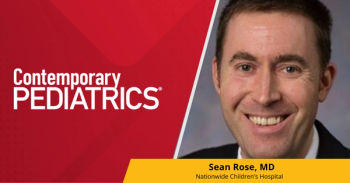
Novel approach to neonatal abstinence syndrome shortens hospital stay
Infants with neonatal abstinence syndrome (NAS) treated with supportive nonpharmacologic interventions have a substantially shorter hospital stay and are less likely to be treated with morphine, a new study shows.
Infants with neonatal abstinence syndrome (NAS) treated with supportive nonpharmacologic interventions have a substantially shorter hospital stay and are less likely to be treated with morphine, a new study shows.
The investigation, conducted at Yale New Haven Children’s Hospital, New Haven, Connecticut, was in 287 infants born at ≥35 weeks’ gestation who were exposed in utero to opioids (their mothers took methadone daily for at least 1 month before delivery) and developed signs of withdrawal.
The program, implemented in stepwise quality improvement cycles over a 5-year period, included several types of interventions:
· Standarized nonpharmacologic care, including placing infants in a low-stimulation environment (dimmed lights, muted televisions, and reduced noise); strongly encouraging parents to care for their infants (rooming-in, feeding on demand, and tending to their infants if they were crying); and urging mothers to provide breast milk.
· Simplified assessment of infants that focused on the infant’s ability to eat, sleep, and be consoled instead of using a standardized scoring system.
· Administration of morphine on an as-needed basis only when nonpharmacologic interventions were unsuccessful even after staff encouraged more parental involvement. If the infant was having difficulty eating, was not sleeping undisturbed for at least 1 hour, or, if crying, could not be consoled within 10 minutes, 1 dose of morphine (0.05 mg/kg) was administered and the infant was reassessed in 3 hours.
· Transfer of infants at risk of NAS directly to the well-baby unit, bypassing the neonatal intensive care unit, and subsequent transfer to the inpatient pediatrics unit for babies with NAS symptoms.
When compared with 55 infants admitted prior to the 5-year project, 44 postimplementation babies with opioid exposure had a 74% reduction in length of hospital stay (22.4 days vs 5.9 days) and decreased average cost of hospitalization from $44,824 to $10,289. In addition, the proportion of infants treated with morphine decreased from 98% to 14%, and 45% of infants took most of their feeds from breast milk, an increase from 20%. No infants were readmitted for treatment of NAS, and no adverse events were reported (Grossman MR, et al. Pediatrics. 2017;139[6]:e20163360).
Thoughts from Dr Burke
As a growing epidemic of opioid use spreads, vexing public health and emergency medicine physicians in many communities, it is a good time to rethink how we treat babies born to addicted mothers. This group adopted a series of changes to all aspects of care of these babies with impressive results. And, although they don’t report this, I’ll bet that their including family members in the inpatient care of NAS babies had many other short- and long-term benefits for everyone involved. Elsewhere, other investigators have proposed use of buprenorphine rather than morphine for care of these infants, also noting decreased length of stay and need for narcotic dosing (N Engl J Med. 2017;376(24):2341-2348). Lots of opportunities for improvement!
Newsletter
Access practical, evidence-based guidance to support better care for our youngest patients. Join our email list for the latest clinical updates.






